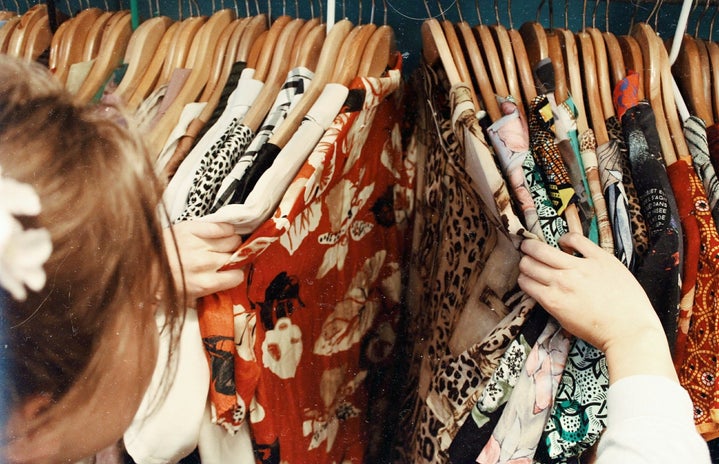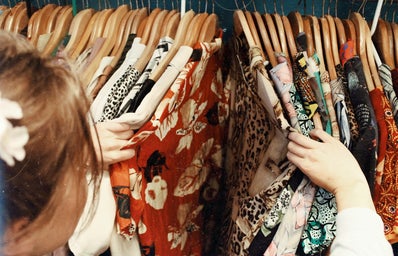On good days, clothing flutters as articles are tossed over the shoulders of customers, their fingers wrapped around the crook of the hangers. On good days, when customers try on clothes they look like the whisps and whispers of a woman in a Claude Monet painting. On good days, there is a parade of heels, as women weave in and out of the narrow aisles, their steps choreographed to some ceremonial cadence. On good days, the plastic clang of hangers accompanies the mechanic clang of the archaic cash register.

But good days are few and far between in a pandemic.
I work in a small women’s clothing store that’s been a staple of the community for decades. So much so that my boss knows what weekends in October are the busiest, what style of clothing our regular customers prefer, and how many residents will cut our coupons out of the local paper. Perhaps this expertise is why she’s so adept at navigating the organized chaos of retail, but even this proficiency does little to fight the unraveling consequences of a pandemic.
Days that would have been busy are much slower. Periodic bursts of busyness and prosperity are both cyclical and brief. The drapery hangs next to a sense of fruitless anticipation. There’s a tendency to predict how many customers will walk in the door and how many will walk out with a bag in hand. But, these predictions are trivial.
Still, there are good days. Still, there are good weekends. Still, there are customers who want to be shepherded through the meadows of clothes. Still, there are customers who make good conversation. And almost every customer will ask how business has been. And there comes the fine line. Do you tell them about the sighs? About the fruitless anticipation that hangs on empty hangers? About the spells of good days? About the spells of bad days?
I’ll say it’s unpredictable. I’ll thank them for asking. I’ll praise their patronage. I’ll ask them to tell their friends to stop in.

And it is with those questions and my responses that I hope they’ll remember their local stores, small businesses. They’ll remember the friendly faces behind the counters, the good conversations, the meadows of clothing. And they’ll remember, perhaps learn, that in these tough times we depend on them the most. That every time the door swings open the employees behind the counter are genuinely overjoyed.
On good days, when customers try on clothes they look like the whisps and whispers of a woman in a Claude Monet painting. And on good days, the employees feel like Claude Monet.


